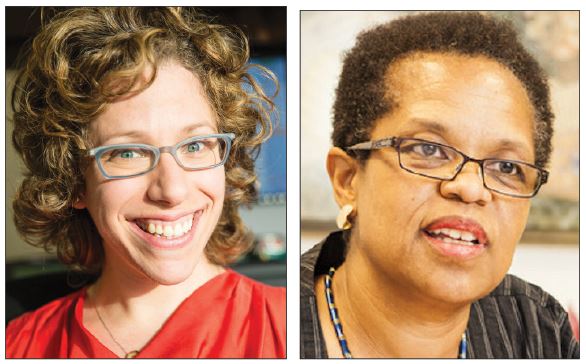 While the U.S. is on track to have one of its best years for job growth in 2016 since the Great Recession, our labor market is still failing the 5.5 million 16- to 24-year-olds who are unemployed and not in school.
While the U.S. is on track to have one of its best years for job growth in 2016 since the Great Recession, our labor market is still failing the 5.5 million 16- to 24-year-olds who are unemployed and not in school.
Half of these “opportunity youth” have not studied or worked since age 16, and 40 percent are from families living below the federal poverty line. These youth represent an untapped talent pool to address the hiring gaps companies are experiencing today.
According to our latest research, strengthening pathways to careers is an incredibly effective way for philanthropists to improve social mobility in the U.S., and opportunity youth are an important group who may benefit — and, in turn, contribute to our economy. There are many ways adults who work with youth can assist them in gaining the skills to begin and remain on fulfilling career tracks.
Here are six actions we can take today to support young people’s pathways to careers.
– We can begin with helping them understand the most promising industries and types of employment in their local communities. Young people are asked to navigate complex systems when deciding on postsecondary education or employment, often with limited support. One place to start is MyBestBets, a online resource that offers guidance on the best career paths or colleges that align with a person’s interests and region.
– Young people must have access to education and training that effectively prepares them for careers. That means educational institutions have to do a better job of partnering with regional employers and community partners to align their curricula with the market and to provide work-based learning opportunities.
– Traditional education isn’t a fit for everyone. In recent years, we’ve seen a proliferation of alternative credentialing programs that provide a pathway to economically sustainable careers, such as Applied Software’s and IBM’s boot camps that teach software coding. These programs often exist outside of formal educational institutions and target a labor market deficit. Opportunity youth and their advisors or mentors should be open to looking into these programs, such as YesWeCode, a national initiative to help 100,000 youth find success in the tech sector.
– Work-based learning provides critical on-the-job experience that opportunity youth often lack. It’s promising to see that Starbucks, CVS Health, Walmart, JP Morgan Chase and more than 40 other large U.S. companies joined together to pledge internships, training programs and jobs for the 16- to 24-year-olds who face systemic barriers to employment and education. Still, more can be done. For organizations interested in building talent pipelines, Grads of Life can help create customized employment pathways.
– Opportunity youth may also need guidance in gaining the soft skills required to succeed in the workplace, such as learning how to give and receive feedback, or communicating effectively in team meetings. Many have survived family strife, struggled to stay in school and even had run-ins with the law. Connecting them with resources for developing those workplace skills, such as Year Up or Urban League, can be critical to their success. Youth.gov also offers online resources for soft skill development.
– Opportunity youth will require counseling and other services to ensure they have support when the path gets difficult. Research and practice show that integrated supports are critical to success on a career pathway. Adults who can provide this support directly or connect students with the resources should take steps to do so. One such program, Single Stop, offers wraparound social supports for students at community colleges.
According to our analysis of Bureau of Labor Statistics data, by 2022 companies will be trying to fill approximately 6 million entry-level positions, almost all of which are suitable for young people. Making opportunity youth a critical part of this solution benefits these companies and helps millions of young adults.
Debby Bielak and Willa Seldon are partners at Bridgespan Group, a global nonprofit organization that collaborates with mission-driven leaders, organizations and philanthropists to break cycles of poverty and improve the quality of life for those in need. Bielak is the co-author of “Billion Dollar Bets to Establish Pathways to Careers,” and Seldon is the co-author of “Hidden Talent: How Smart Companies Are Tapping Into Youth Unemployment.”

























